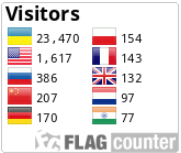ETHICAL PRINCIPLES OF SOCIAL EDUCATOR ACTIVITY
DOI:
https://doi.org/10.28925/2518-7635.2022.77Keywords:
ethical principle, ethic, code of ethics, social educator activityAbstract
The article reveals the importance of ethical regulation of the social educator profession. The ethical principles of socio-pedagogical activity recorded in the code of ethics are characterised by respect for the dignity of each person, priority of the client's interests, tolerance, trust and interaction in solving the client's problems, availability of services, confidentiality, compliance with the norms of professional ethics. The social educator activity requires moral regulation of society as a specially organised and regulated activity, which involves orientation towards personality, and individuality, revealing the essential forces of a person, providing him with comprehensive social-psychological-pedagogical help in solving personal problems, in realising himself as a subject own life The Code of Ethics focuses on the observance of such ethical principles of socio-pedagogical activity as respect for the dignity of each person, priority of the client's interests, tolerance, trust and interaction in solving the client's problems, availability of services, confidentiality, compliance with the norms of professional ethics. The moral aspect of the social educator activity is revealed through a system of moral values, virtues and goodness in behaviour, which guides the observance of the norms of professional ethics in the activity of a modern social educator.
Downloads
References
Riabova, Y. (2021). Professional training of future specialists in the social sphere in the conditions of multicultural society. The Modern Higher Education Review, (6), 46-55. https://doi.org/10.28925/2518-7635.2021.63
Lyakh, T. & Spirina, T. (2021) Building professional competences of social workers through distance learning in the context of the Covid-19 pandemic. E-learning in the Time of COVID-19: Monograph. Vol. 13, Katowice, Poland, pp. 151–162. https://doi.org/10.34916/el.2021.13.13
Liakh, T., Spirina, T., & Klishevich, N. (2022). Social prevention of family injury in the territorial community. Social Work and Education, 9(2), 245–255. https://doi.org/10.25128/2520-6230.22.2.5
Maussumbayev R, Toleubekova R, Kaziyev K, Baibaktina A, & Bekbauova A. (2022). Development of research capacity of a future social pedagogue in the face of digital technologies. Educational Information Technology (Dordr), 27(5), 6947-6966. DOI: 10.1007/s10639-022-10
Mospan, N. V., & S. O. Sysoieva. (2022). Trends in digital adaptation of schools during the COVID-19 pandemic, Information Technologies and Learning Tools, 91(5), 21–35. DOI: https://doi.org/10.33407/itlt.v91i5.5063
Mospan, N. (2023). Trends in emergency higher education digital transformation during the COVID-19 pandemic. Journal of University Teaching & Learning Practice, 20(1), 50-70. https://doi.org/10.53761/1.20.01.04
Regueiro, B., Rodríguez-Fernández, J., Crespo, J., & Pino-Juste, M. (2021). Design and validation of a questionnaire for university students’ generic competencies (COMGAU). Frontiers in Education, 6. https://doi. org/10.3389/feduc.2021.606216.
Pavliuk, R., Liakh, T., Bezpalko, O., & Klishevich, N. (2017). Research-Based Training: Methodological Characteristics and Results of the Analysis of Educational Programs. Social Sciences, 6(4), 152. https://doi.org/10.3390/socsci6040152.
Pavliuk, R. & Liakh, T. (2019). Approaches to the development of the ICT competence standard in the system of research-based training for the future specialist of the social sphere in Ukraine. In: E. Smyrnova-Trybulska, P. Kommers, N. Morze, J. Malach (Eds.). Universities in the Networked Society. Critical Studies of Education, 10. Springer, Cham. (pp. 201–222). https://doi.org/10.1007/978-3-030-05026-9_12.
Published
How to Cite
Issue
Section
License
Copyright (c) 2023 The Modern Higher Education Review

This work is licensed under a Creative Commons Attribution-NonCommercial 4.0 International License.













